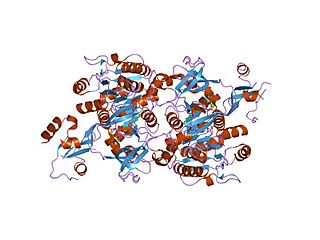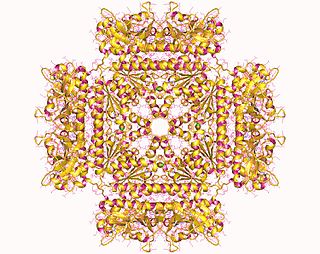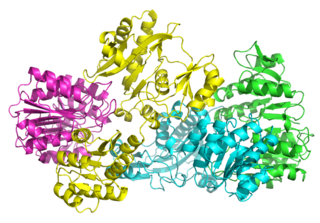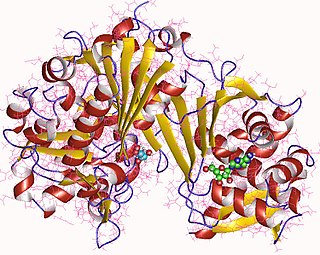| urea carboxylase | |||||||||
|---|---|---|---|---|---|---|---|---|---|
| Identifiers | |||||||||
| EC no. | 6.3.4.6 | ||||||||
| CAS no. | 9058-98-4 | ||||||||
| Databases | |||||||||
| IntEnz | IntEnz view | ||||||||
| BRENDA | BRENDA entry | ||||||||
| ExPASy | NiceZyme view | ||||||||
| KEGG | KEGG entry | ||||||||
| MetaCyc | metabolic pathway | ||||||||
| PRIAM | profile | ||||||||
| PDB structures | RCSB PDB PDBe PDBsum | ||||||||
| Gene Ontology | AmiGO / QuickGO | ||||||||
| |||||||||
In enzymology, a urea carboxylase (EC 6.3.4.6) is an enzyme that catalyzes the chemical reaction
- ATP + urea + HCO3- ADP + phosphate + urea-1-carboxylate
The 3 substrates of this enzyme are ATP, urea, and HCO3-, whereas its 3 products are ADP, phosphate, and urea-1-carboxylate (allophanate).
This enzyme belongs to the family of ligases, specifically those forming generic carbon-nitrogen bonds. The systematic name of this enzyme class is urea:carbon-dioxide ligase (ADP-forming). This enzyme participates in urea cycle and metabolism of amino groups. It employs one cofactor, biotin.








